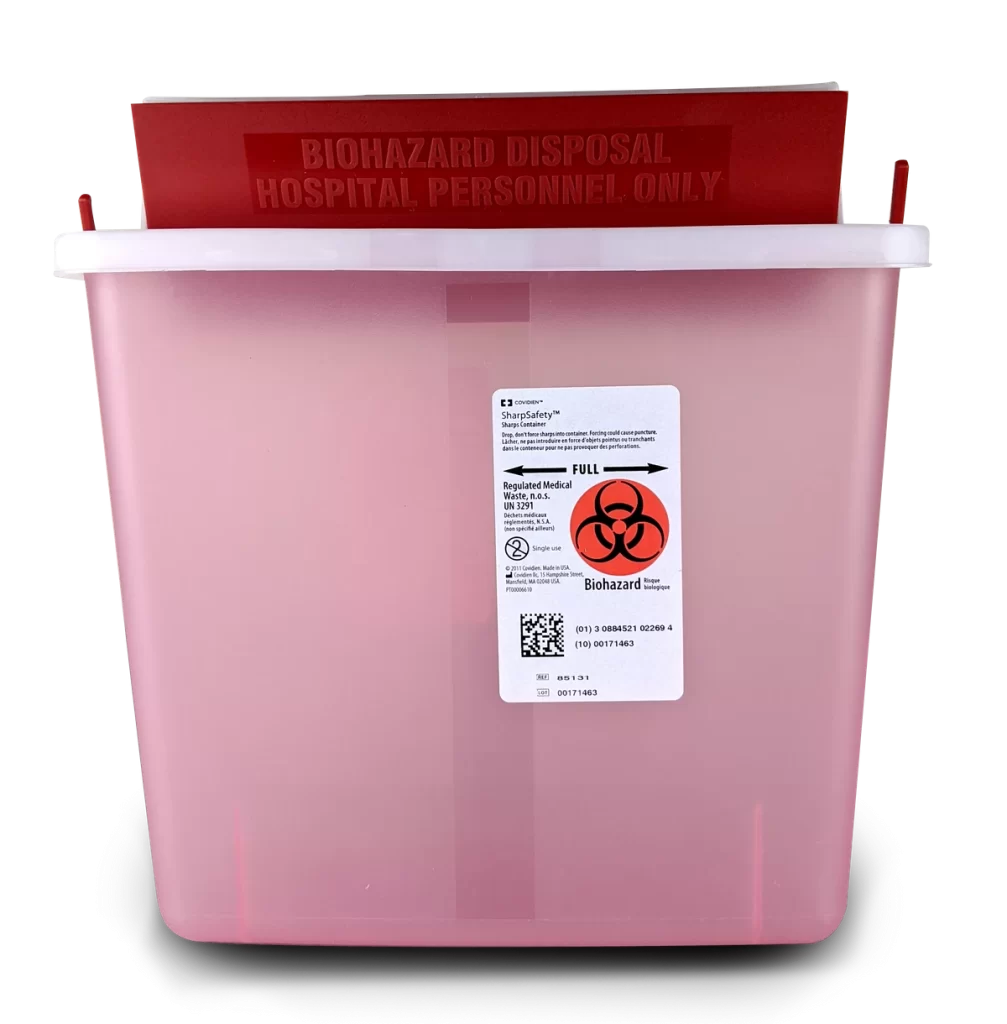Georgia Regulated Medical Waste Compliance Standards
In the State of Georgia, medical waste (known in Georgia as “biomedical waste”) is regulated by several entities to ensure public health and environmental safety. The primary regulating agency is the Georgia Environmental Protection Division (EPD), which oversees waste treatment, storage, transportation, and disposal. The Georgia Department of Public Health (DPH) provides guidelines and regulations for healthcare facilities on handling medical waste. Local county health departments enforce state regulations and may have additional local requirements. At the federal level, the U.S. Environmental Protection Agency (EPA) sets guidelines under the Resource Conservation and Recovery Act (RCRA), and the Occupational Safety and Health Administration (OSHA) establishes standards for the safe handling of hazardous materials to protect workers. These entities collaborate to manage medical waste effectively in Georgia.
Legislative authority for regulations governing medical waste can be found in Rule 391-3-4-.15 of the Rules and Regulations of the State of Georgia.
How Georgia Defines Medical Waste
In the State of Georgia, “medical” or “biomedical waste” is defined as “any solid waste which contains pathological waste, biological waste, cultures, and stocks of infectious agents and associated biologicals, contaminated animal carcasses (body parts, their bedding, and other waste from such animals), chemotherapy waste, discarded medical equipment and parts, not including expendable supplies and materials, which have not been decontaminated.” Eight types of biomedical waste are identified in Georgia’s Rules:
- Pathological Waste
- Biological Waste
- Cultures and stocks of infectious agents and associated biologicals
- Contaminated animal carcasses
- Infectious Waste
- Sharps
- Chemotherapy waste
- Discarded medical equipment
Medical Waste Generators in Georgia
In Georgia, the laws, statutes, and regulations governing medical waste identify the following types of medical waste generators:
- Healthcare Facilities
- Physician, Dental, and Chiropractic Offices
- Nursing Homes and Long-Term Care Facilities
- Veterinary Clinics and Animal Hospitals
- Laboratories
- Pharmacies
- Home Healthcare Providers
- Emergency Medical Services (EMS)
- Blood Banks and Dialysis Centers
- Funeral Homes and Mortuaries
- Educational and Research Institutions
- Correctional Facilities
- Industrial and Manufacturing Facilities
Storage and Containment Regulations
Georgia’s Rules call for biomedical waste to be stored and contained in a way that protects it from animals, rain, and wind, does not attract insects and rodents, and minimizes public exposure. Biomedical waste must be separated from other waste at the point of origin. Biomedical waste, except for sharps, must be placed in containers that are moisture-proof and strong enough to prevent ripping, tearing, or bursting under normal conditions. The containers must be securely closed to prevent leakage or spillage during storage, handling, or transport.
Sharps must be stored, transported, treated, and disposed of in leak-proof, rigid, puncture-resistant containers that are tightly sealed to prevent loss of contents. Rigid containers for discarded sharps and other disposable containers used for biomedical waste must be red or orange in color, or clearly marked with the universal biohazard symbol or the word “Biohazard”.
Biomedical waste in disposable containers must be stored, handled, or transported in disposable or reusable pails, cartons, boxes, drums, dumpsters, or portable bins. These containers must have a tight-fitting cover and be kept clean and in good repair. They can be any color but must be clearly labeled with the universal biohazard symbol and the word “Biohazard” on the sides, visible from any direction when upright.
- Reusable containers used for shipping biomedical waste must be thoroughly washed and decontaminated each time they are emptied.
- Reusable pails, drums, dumpsters, or bins used for biomedical waste must not be used for other purposes unless they have been decontaminated and the biohazard symbol and the word “Biohazard” have been removed.
Biomedical waste must be removed within 30 days from the time the first non-sharps item is placed into the red bag or sharps container. For sharps containers containing only sharps, the 30-day storage period begins once the container is sealed.
Transfer Regulations
Waste generators seeking to transfer biomedical waste to off-site treatment/disposal facilities can only do so if the waste collector operates under Georgia’s Rules and is properly permitted. Biomedical waste cannot be “transported in the same vehicle with other solid waste unless the biomedical waste is contained in a separate, fully enclosed leakproof container within the vehicle compartment.” Transportation vehicles in which there is any spillage of biomedical waste must be decontaminated promptly and never used to transport food products.
Disposal Regulations
Georgia requires that biomedical waste be disposed using one of the following methods at a properly permitted facility:
- Incineration:
- Incineration at a thermal treatment technology facility ensures complete combustion of waste, rendering it nonpathogenic.
- Facilities must maintain a minimum temperature in the primary chamber to destroy infectious agents and produce residue free of odors and unstable organic matter.
- For incinerating chemotherapy wastes, the secondary combustion chamber must maintain at least 1,800 degrees Fahrenheit with a minimum residence time of two seconds.
- Emissions must comply with air quality standards set by the EPD.
- Decontamination by Steam (Autoclave):
- Steam under pressure must be used to render the waste noninfectious.
- A recording thermometer must ensure the attainment of 121 degrees Centigrade (250 degrees Fahrenheit) for at least 30 minutes to decontaminate the entire load.
- Monitoring of the steam sterilization process is required to confirm decontamination.
- Monitoring can be done using biological indicators or other approved methods, with indicators placed at the point where thermal penetration is slowest.
All medical waste generators in Georgia are responsible for maintaining compliance with local, state, and federal regulations governing the management, storage, treatment, and disposal of medical waste. This content is provided for general informational purposes only and is intended as a high-level overview. For the most current and detailed requirements, please refer to the applicable regulatory authority in your jurisdiction.



